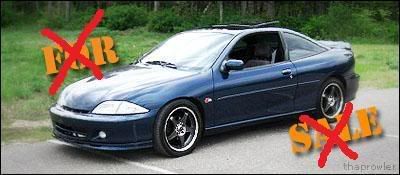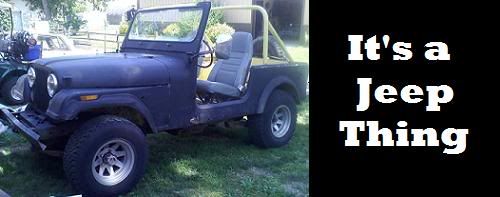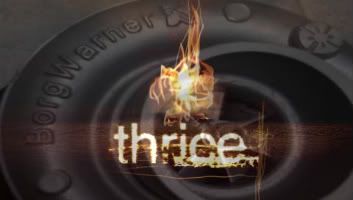From GM...





-A new midsize Buick sport sedan with a European-bred driving experience
-On sale in the second quarter of 2010
-Based on the award-winning Opel Insignia and available now as a Regal in China
-Modern, sleek design with great attention to detail and excellent build quality
-Efficient, four-cylinder/six-speed powertrain with 30 mpg (est.)
-Turbocharged model available in summer 2010
-Driver-selectable Interactive Drive Control System available in summer 2010
-Available rear-seat thorax air bags
-Standard 18-inch wheels, leather and heated front seats, XM Satellite Radio, Bluetooth and OnStar.
Buick will reveal the 2011 Regal sport sedan to customers in the L.A. area. Armed with turbocharged horsepower, a driver-selectable suspension system and a firm, European-tuned chassis, it delivers a driving experience that rivals the best import sport sedans in the segment.
“The 2011 Buick Regal is like nothing you’ve ever experienced from this brand,” said Susan Docherty, general manager of Buick GMC. “The Regal is the next chapter in Buick’s transformation and will expand the portfolio to include a sport sedan.”
The new Regal arrives in the second quarter of 2010, with its sights aimed squarely on competitors like the Acura TSX and Volvo S60. It has a longer wheelbase and greater trunk volume than those vehicles, along with standard features – including a six-speed automatic transmission, 18-inch wheels and OnStar – that aren’t offered standard on either competitor.
The Regal’s development is rooted in Germany, where the globally led engineering team created the award-winning Opel Insignia – the 2009 European Car of the Year. The Insignia has garnered more than 31 prestigious awards and is the best-selling midsize sedan in Europe. Regal will bring all of Insignia’s award-winning design, technology and European-inspired performance capabilities to the American market.
The Regal has already been a success on another continent, in China. It went on sale in December 2008 and more than 64,000 Regals have been sold there. Enthusiastic customers cite its sculpted, flowing design and responsive performance as the top reasons for purchase.
Regal at a glance
Regal will initially be offered in premium CXL trim only, with additional trim levels to be offered in the 2012 model year. The well-equipped Regal CXL includes the following as standard or available equipment:
-Standard 2.4L Ecotec direct injected engine rated at an estimated 182 horsepower (136 kW)
-Available 2.0L Ecotec turbocharged and direct injected engine rated at an estimated 220 horsepower (164 kW) – available late-summer 2010
-Both engines have a six-speed automatic transmission standard with driver-shifting control
-Estimated 30 mpg on the highway with the 2.4L and 29 mpg highway with the 2.0L turbo engine
-MacPherson strut front suspension and four-link independent rear suspension
-All-new Interactive Drive Control System (IDCS) available with the 2.0L turbo, offering driver-selectable suspension settings and automatic driver suspension setting adaptability
-Four-wheel disc brakes with four-channel anti-lock braking system, brake assist and electronic parking brake
-Standard StabiliTrak stability control system and full-function traction control
-Standard dual-stage frontal air bags, side-curtain air bags and pedal-release system; rear-seat thorax air bags available
-Available navigation system, Harmon Kardon sound system, internal flash drive (1GB), hard drive with 10GB for music and USB port
-Standard 18-inch wheels (19-inch wheels standard with IDCS)
-Standard 12-way power, leather and heated driver seat; leather and heated passenger front seat; Bluetooth capability; XM Satellite Radio and OnStar.
Design story
The Regal’s sleek design blends the sweeping silhouette and proportions of a coupe in a progressive package that suggests motion from all angles. Great attention to detail complements that aggressive styling, with tailored applications of Buick’s signature design cues, such as the waterfall grille, select use of chrome trim and superior fit and finish of the exterior panels.
“Regal is all about great proportions,” said John Cafaro, design director, passenger car. “For example, with the fenders flared to wrap around the tires. It’s an aggressive stance that people aren’t used to seeing in recent Buicks.”
The car’s performance-oriented spirit is also conveyed in sleek, sculpted body-side detail and aggressive headlamps that further suggest motion. At the rear, an abbreviated deck and tucked-in body panels are the hallmarks of a contemporary sport sedan, with bold taillamps and their intricate lighting elements reinforcing Regal’s attention to detail. Eighteen-inch wheels are standard.
The sweeping design motif carries over to the interior, where the side panels flow uninterrupted into the instrument panel. The instruments have the look of expensive sport timepieces and are lit with ice-blue LED lights. The center stack, housing the climate and “infotainment” controls, was designed to allow for a lower, driver-centric instrument panel profile. Features such as a thick-rimmed, leather-wrapped steering wheel and firm, highly bolstered and leather-covered seats also support the sport-oriented driving experience.
“There is great design harmony between the exterior and interior,” said Cafaro. “The feeling of flow and motion carries through in an engaging manner that makes you want to take the Regal out to your favorite twisting road to see what it can do.”
A breakthrough interior
The Regal’s finely crafted, sporty and well-appointed interior builds on the exceptional attention to detail found in the Enclave and LaCrosse, blending signature styling cues with contemporary sport sedan aesthetics.
Regal’s firm, highly bolstered seats were benchmarked against the top import competitors for comfort and support, while a standard flow-through center console offers plenty of storage for passengers in the front and back.
Smart applications of technology are also hallmarks of the Regal, including details such as a multi-function controller on the center console for operation of the audio system, navigation system and the Bluetooth phone. The faceplate for the “infotainment” screen is set at a 30-degree angle to contribute to the car’s flowing interior design.
A new era in Buick design is also seen in the satin metallic, piano black and new, Kibo-patterned interior trim materials. Kibo is a rich, dark, progressively grained wood that lends an international flair to the Regal.
Under the hood
Unique with its all-four-cylinder powertrain, the Regal relies on the excellent horsepower-per-liter ratio of the Ecotec engine family to deliver smart, on-demand performance that is also very efficient.
Both the standard 2.4L engine and the available 2.0L turbo use direct injection technology to optimize performance, reduce emissions and maximize fuel efficiency. The 2.4L is the same engine offered in the Buick LaCrosse, but in the smaller, lighter Regal, it delivers more agile performance. The 2.0L turbo cements the sport sedan credibility of the Regal, with on-demand power comparable to a V-6, but the inherent efficiency of a four-cylinder. To ensure responsive power across the rpm range, the 2.0L turbo uses a twin-scroll turbocharger that builds power quickly at lower rpm.
Distinct, uniquely calibrated six-speed automatic transmissions are paired with each engine. Both offer driver shift control that enhances the sporty driving feel of the Regal.
Driving experience
The chassis and structural systems were developed in Germany and give the Regal the handling and dynamics of a premium European sport sedan, as well as the quiet, refined ride and road manners expected of a Buick. The body structure is one of the most rigid in the segment, which is approximately 25-percent stiffer than the previous Regal. This solid structure supports more precise suspension tuning and a quieter ride.
A relatively long wheelbase of 107.8 inches (2738 mm) gives the Regal refined, well-balanced vehicle dynamics and supports comfortable ride tuning. Additionally, an independent MacPherson strut-type front suspension with single-path mountings and hydraulic ride bushings; a four-link independent rear suspension; hydraulic rack-and-pinion steering; and optimized four-wheel disc brakes are optimized to the capability of the individual powertrains and tailored to the expected use by drivers. Models equipped with the 2.0L turbo engine, for example, feature larger brakes.
Latest-generation electronic stability control (ESC or StabiliTrak), anti-lock brake system (ABS), and traction control system (TCS) are standard with Buick’s innovative, Interactive Drive Control System (IDCS) real-time damping system offered on models equipped with the 2.0L turbo powertrain.
Interactive Drive Control System
Regal’s Interactive Drive Control System chassis technology (available on models with the available 2.0L turbo engine) offers enhanced vehicle stability and greater driving safety. It is designed to change the personality of the car based on the personality of the driver. A sophisticated driving mode control module continually monitors driving style utilizing yaw rate, lateral and longitudinal acceleration, steering wheel, throttle and vehicle speed. It defines the dynamic vehicle state, including acceleration, braking and cornering, to optimize chassis reactions. It also executes all of the IDCS driver selections.
All four dampers are electronically controlled and continuously adapt within milliseconds to the prevailing road conditions, vehicle movements and individual driving style. Chassis settings are adjustable by the driver, with Normal, Tour and Sport settings.
IDCS allows the driver to choose between three different operating modes that change the suspension settings, throttle response, shift pattern and steering sensitivity through the variable effort steering system. The three modes deliver three types of experiences:
-Normal – balanced and optimized for all driving situations
-Tour – optimized for comfort and relaxed driving on long journeys
-Sport – optimized for road holding; enthusiast driving .
Selecting “Sport” mode optimizes the car for dynamic driving, tightening the suspension and steering response and speeding up the reaction of the automatic transmission. The “Tour” mode is optimal for long-distance cruising or rough road conditions, providing an increase in comfort. “Normal” or Default Mode is the perfect all-around setting for daily commuting and city traffic. The other major benefit of Interactive Drive Control is that it automatically adapts Regal’s performance settings to individual driving styles. When a driver begins to drive more aggressively it will tighten the suspension and increase steering effort and change to a more aggressive throttle response. When the vehicle senses that the driver is doing relaxed cruising, it adjusts settings for rolling smoothness and comfort.
Apart from a more rewarding driving experience, IDCS also offers safety benefits in emergency situations. For example, if an obstacle must be avoided when the car is in Tour mode, various chassis sensors convey this to the DMC and the dampers are stiffened within milliseconds, delivering greater body control.
2011 BUICK REGAL PRELIMINARY SPECIFICATIONS
Overview
Models:
2011 Buick Regal Premium Sport Sedan
Body style / driveline:
four-door, 5-passenger front engine transaxle. Front-wheel-drive midsize vehicle
Construction:
steel body frame integral (unibody) with front and rear crumple zones; galvanized steel front fenders, hood, roof, door panels, one-piece bodyside outer panel, thermal plastic olefin (TPO) bumper fascias
EPA vehicle class:
Midsize
Manufacturing location:
Russelsheim, Germany
Key competitors:
Acura TSX, Volvo S60, Mazda 6 and Volkswagen Passat
Engines
2.4L DOHC I-4
2.0L DOHC I-4 Turbo
Displacement (cu in / cc):
145.4 / 2384
122 / 1998
Bore and stroke (in / mm):
3.46 x 3.85 / 88 x 98
3.39 x 3.39 / 86 x 86
Block material:
precision sand cast aluminum
cast aluminum
Cylinder head material:
SPM cast aluminum
cast aluminum
Valvetrain:
overhead camshafts, four-valves per cylinder, continuous variable valve timing intake and exhaust
overhead camshafts, four-valves per cylinder, continuous variable valve timing for intake and exhaust
Ignition System:
individual coil-on-plug
individual coil-on-plug
Fuel delivery:
high-pressure direct injection and electronic throttle control
direct injection with variable high-pressure rail and electronic throttle control
Compression ratio:
11.2:1
9.2:1
Horsepower (hp / kW @ rpm):
182 / 136 @ 6700 rpm (est)
220 / 164 @ 5300 (est)
Torque (lb-ft / Nm @ rpm)
172 / 233 @ 4900 rpm (est)
258 / 349 @ 2000 (est)
Recommended fuel:
regular unleaded
premium recommended but not required
Max engine speed:
7000 rpm
6350 rpm
Emissions controls:
close-coupled, catalytic converter; variable valve timing; positive crankcase ventilation evaporative system
close-coupled catalytic converter; variable valve timing; 58x ignition system; returnless fuel rail; wide-range O2 sensor
Estimated fuel economy
(city / hwy)
20 / 30
18 / 29
Transmissions
Hydra-Matic 6T45
Aisin AF40
Type:
six-speed transverse, electronically controlled, automatic overdrive
six-speed transverse, electronically controlled, automatic overdrive
Application:
2.4L
2.0L turbo
Gear ratios (:1):
First
4.58
4.14
Second
2.96
2.37
Third
1.91
1.55
Fourth
1.44
1.15
Fifth
1.00
0.86
Sixth
0.74
0.68
Reverse
2.94
3.39
Final Drive
3.23
3.33
Chassis/Suspension
Front:
independent, MacPherson strut-type with dual-path mountings, specifically tuned coil springs, direct-acting stabilizer bar (hollow); hydraulic ride bushings; continuous damping control (Interactive Drive Control System) available on models equipped with 2.0L turbo
Rear:
four-link independent rear; hollow stabilizer bar; continuous damping control (IDCS available on models equipped with 2.0L turbo
Traction control:
all-speed using engine torque reduction and brake intervention
Steering type:
hydraulic, specifically calibrated rack-and-pinion power steering; variable-effort with 2.0L turbo
Steering wheel turns lock-to-lock:
2.68 (18- and 19-inch wheels)
Turning circle, curb-to-curb (feet / meters):
37.4 / 11.4 (18- and 19-inch wheels)
Steering ratio:
15.2:1
Brakes
Type:
four-wheel disc w/ABS (w/ESC)
Brake rotor diameter – front (in / mm):
2.4L: 11.7 / 296 vented; single-piston, cast iron caliper
2.0L: 12.6 / 321 vented; single-piston, cast iron caliper
Brake rotor diameter – rear (in / mm):
2.4L: 11.5 / 292 solid; single-piston, aluminum caliper
2.0L: 12.4 / 315 vented; single-piston, aluminum caliper
Wheels / Tires
Wheel size and type:
18-inch aluminum (std on all models)
19-inch aluminum (opt with 2.0L turbo
Tires:
Michelin Pilot MXM4 P235/50R18
Goodyear Eagle RSA P245/40R19
DIMENSIONS
Exterior
Wheelbase (in / mm) :
107.8 / 2738
Overall length (in / mm):
190.2 / 4831
Overall width (in / mm):
73.1 / 1811
Overall height (in / mm):
58.4 / 1483
Front track (in / mm):
62.4 / 1585
Rear track (in / mm):
62.5 / 1587
Interior
Seating capacity (front / rear):
2 / 3
Headroom (in / mm):
38.8 / 985 (front)
36.8 / 935 (rear)
Legroom (in / mm):
42.1 / 1069 (front)
37.3 / 947 (rear)
Shoulder room (in / mm):
56.7 / 1440 (front)
54.4 / 1382 (rear)
Hip room (in / mm):
55.4 / 1407 (front)
52.3 / 1328 (rear)
EPA Passenger Volume (cu ft / L) :
96.81 / 2741
EPA Interior Volume (cu ft / L):
111.1 / 3146
Cargo Volume (cu ft / L):
14.25 / 403
Capacities
Fuel tank (gal / L):
18.5 / 70
Engine oil (qt / L):
2.4L: 5.0 / 4.7
2.0L: 6.3 / 6.0
Curb weight (lbs / kg):
3600 /1633 (2.4L)
>>>For Sale? Clicky!<<<
-----The orginal Mr.Goodwrench on the JBO since 11/99-----



























